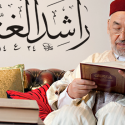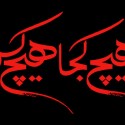Interview with Abdou Filali-Ansary.
Interview by Sophie Boukhari, UNESCO Courier journalist.
There is a reformist current in Islam, one that takes a critical approach to its origins. For Moroccan philosopher Abdou Filali-Ansary*, if Muslims had more room to freely debate issues, religion and politics might no longer be so closely entwined

Since the 19th century, many Muslim thinkers have sought to “reform” Islamic thought. But their efforts have hardly led to modern Muslim regimes. Why not?
When there’s a crisis, people tend to go back to their roots. In the 19th century, the reform movement was very strong because, with the colonial conquests, modernity suddenly burst into dar el-islam, the “house of Islam.” Modernity meant people changing their relationship with both the world and themselves. For the first time, through science, they realized that many things, such as certain weather patterns or illnesses, were not a matter of fate. The social order no longer seemed impossible to change either. Revolutions could sweep away despots and people could improve their living standards.
From India to North Africa, a great wave of thinkers arose to declare that Islam, in its earliest form, was in fact moving towards this powerful modernity. But Jamal ad-Din al-Afghani in Iran, Mohammed Abduh in Egypt and others didn’t follow the example of Christian reformers, who swept away previous interpretations in order to look at the scriptures themselves with a fresh eye. These intellectuals regarded the history of the first Muslims as a reference point, on par with the Koran and the Sunnah (see glossary p. 41). Their return to the roots of Islam was defensive. They wanted to reassure Muslims, to boost their confidence by telling them that their religion favoured progress.
The most important event in the recent history of Islamic thought came later, in the 1920s, with a schism in the reform movement. On one side was Hassan el-Banna, an Egyptian famous for founding the Muslim Brotherhood, and on the other, Ali Abderraziq, also from Egypt, who was the forerunner of the critical movement within Islam.
Having translated his work, I can say he was the first one to go back to the roots with a critical eye. He emphasized that the basic tenets of Islam, obedience and consultation, are not rules of political organization but moral values. In return for being obeyed, a person with responsibilities—family, business or political—must avoid making decisions alone like a tyrant and take into account the views of those he leads. Abderraziq showed that while the Islamic political order is built by Muslims, there is no religious duty to do so. You can see there’s a big difference.
But the Prophet Mohammed founded an Islamic city that has fuelled the imaginary universe of Muslims. What’s more, he was a warrior himself.
What the Prophet founded at Medina wasn’t a political entity. It was a religious community. Mohammed was born in a society where there was no state. The tribes were constantly at war with each other, except for four months of truce every year. He tried to preach in this environment for 10 years but the only followers he drew were the rejected—the slaves, women and minority tribes. So he left for Medina in 622 (in the Hegiran calendar), where he managed to reconcile two enemy tribes and set up the first Muslim community. It was a sort of anti-tribe, which ruled out identifying oneself with a particular clan. You joined it because you wanted to become a Muslim, by simply taking an oath (a profession of faith). But this community was attacked by other tribes and the Prophet had to defend himself and become a warrior.
At the time of his death, Arabia had embraced the new religion and he was planning an expedition to bring the new message to Syria. The circumstances of history made Medina a centre of religious proselytism. But the orders Mohammed left behind were clear: never use force to convert people.
But there is a very violent verse in the Koran which says: “So when the sacred months have passed away, then slay the idolaters wherever you find them, and take them captives and besiege them and lie in wait for them in every ambush.”
Yes, that sura is very violent indeed. It was revealed to the Prophet in a war situation, when the polytheists were threatening the very survival of the Muslims. Alongside this verse, I’d quote another of the Prophet’s commandments: “Beware, respect people, do not rip up trees, burn houses or rape women.” This is what drew people to Islam.
After Mohammed died in 632, the Muslim community became a proper state.
Muslims were immediately divided over this. Those who defended an empire (caliphate) led by a chief “elected” by an assembly, carried the day. The supporters of Ali, who wanted a state run by the Prophet’s family, created Shiism. But a third branch is always forgotten. These were the earliest Muslims, such as Malik ibn Nuwaira and Abu Dharr, who said: “We’re a religious community, so why set up a state?” They were executed or forced out. Over the centuries, many thinkers who’ve taken up their ideas have met the same fate. Their history has never been written.
Why not?
No authority allowed it. In the 20th century, the critical movement continued to be sidelined but it stayed alive. Ali Abderraziq has had many spiritual heirs, such as Mohammed Mahmud Taha in Sudan, who was hanged by Sudanese President Jaafar el-Numeiry in 1985 and whose writings sell tens of thousands of copies. Today you have the Tunisians Mohammed Talbi and Abdelmajid and Mohammed Charfi, and in Pakistan Fazlur Rahman and Abdul Karim Surush in Iran. They all point out that advocates of the “state” triumphed for historical reasons and based themselves on one of many possible interpretations of the canonical texts. Obviously, these people don’t go out and kill….
But leaving history aside, there are sizeable obstacles to criticism of the Koran, such as its “uncreated,” basically divine nature.
This notion developed much later, three or four centuries after the Prophet’s death. It began as a minority view but the theologians who argued for it were so badly persecuted that they won the support of the masses and so managed to impose it. Even more important is the fact that the famous concept of sharia, conceived as a law which is meant to govern every aspect of a believer’s life, took shape nearly 200 years after the Prophet’s death. This must be stressed because it marked an extremely important break with the past. It was established by Mohammed Ibn Idriss Shafi’i, a brilliant young intellectual born 150 years after the Prophet died. Early Islam only talks about hudud (limits and restraints) imposed by God, rather like the commandments not to kill people or seize women. Islamic jurists draw on it in different ways to give laws and customs an ethical basis. But Shafi’i went much further and used the hudud in the Koran to come up with rules for every aspect of human behaviour.
At every stage in Islam’s history, it’s always the hardliners who win. Why?
Because very early on, politics seized on religion and subsequent religious debate was always dominated by political considerations and “instrumentalized” for partisan ends.
Let’s talk about this modern fundamentalist branch of Islam born in the early 20th century, at opposite ends of what you call the critical movement. Why has it been so popular?
Fundamentalism is driven by two major forces that are crushing us like jaws of steel. It’s been supported by local regimes and by the new world order dominated by “the West.” It’s also been used everywhere to combat the left and liberation movements. As Charfi pointed out in his book Islam and Freedom, Arab and Muslim regimes didn’t just fund movements but drew up education policies aimed at teaching the fundamentalist view of Islam. So the idea of a lasting confrontation has been planted in people’s minds.
The younger generations are cut off from universal ideas. Philosophy is no longer taught in Muslim countries or else in such a minor way as to have little effect. The other major force driving fundamentalism has to do with international politics and economic relations between North and South. Since rich countries support despotic regimes, the mosque is the only place where the local and world economic order can be contested. Add to that what are perceived as attacks from the outside, such as massive Western support for Israel and the bombing of Iraq, Srebrenica (Bosnia) and now Afghan-istan. The media also carry a heavy responsibility because they only talk about Islam when there are attacks and pretend not to know that fundamentalists are a minority. All this is setting the scene for a new Hundred Years’ War and creating an extreme division between Islam and the West.
So you agree with Samuel Huntington’s ideas on the “clash of civilizations.”
No. Huntington depicted this clash as something almost biological, as if we were all fundamentally different, as if culture was a kind of second nature. In fact, the clash is a historical construction, a product of specific conditions and political choices.
So you don’t see Islam as hostile to democracy and human rights…
Democracy and human rights are recent victories won by humanity. The values that the fundamentalists and Huntington say are Western are in fact universal. Democracy is like fire or Arabic numerals—the property of humankind. Islam is neither for it nor against it. A Muslim can only be against it if he accepts the historical interpretations of the Koran as “uncreated” and the sharia—these fantasies that came later and claimed religion must rule everything. Of course, Westerners were the first to achieve democracy, but they did so in special historical circumstances and they too had violent arguments before doing away with part of their religious heritage.
In Muslim countries, the critical school of thought might have a chance if there were minimal conditions of freedom. Look at the recent history of Iran. In the 1950s, the country was at about the same stage of development as Greece. If the CIA hadn’t overthrown Mohammed Mossadegh in favour of the Shah, he would probably have used the country’s oil to move towards democracy.
But the Shah suppressed all dissent and accepted U.S. domination. Once again, Muslims were forced back to the roots of their identity in Islam. Even left-wing Iranians eventually supported Khomeini as a way to fight the Shah’s dictatorship. Twenty years later, in 1997, more than two-thirds of Iranian voters put their weight behind Mohammed Khatami, a supporter of this critical school of thought that I call “the new conscience of Islam.”
* Editor of the North African book review journal Prologues and author of a number of books on Islam.




iThere are no comments
Add yours